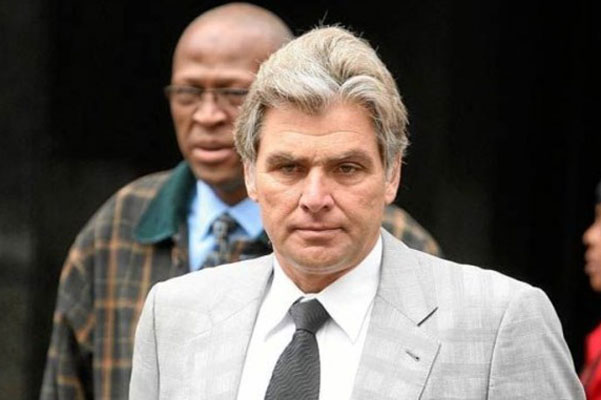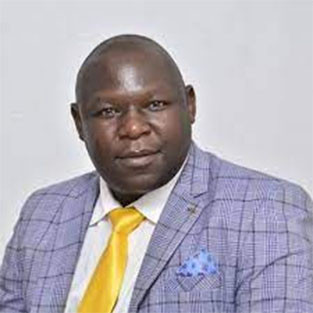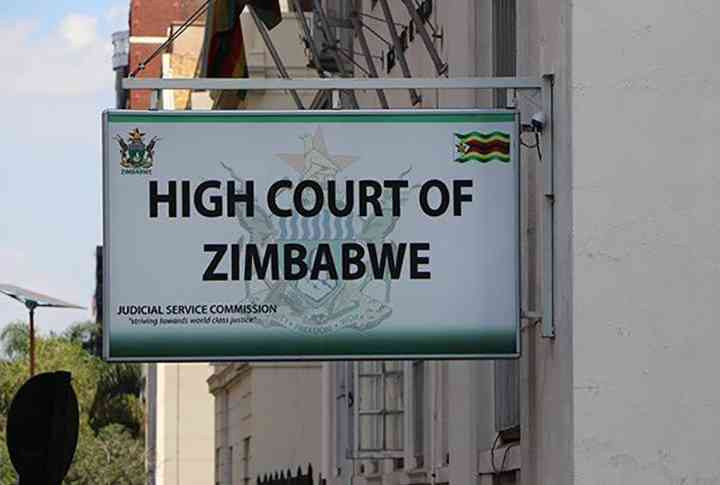
NUANETSI RANCH, a large multi-purpose farm the size of 1% of Zimbabwe, is a fallen giant whose prospects of recovery appear next to nil.
By Rex Mphisa

Unless drastic action is taken to bring back life to this 900 000-acre former paradise, it will remain literally dead, directly benefiting only one family, the Rautenbach family, that allegedly keeps a hold on the property at the expense of thousands that used to draw life out of Nuanetsi.
Resident director of Nuanetsi Ranch Charles Madonko says businessman Billy Rautenbach has, despite the expiry of his company Green Fuel’s 10-year contract, remained put.
Reports say slow decision-making saw Green Fuel move investment capital meant for Nuanetsi Ranch to Chisumbanje in Chipinge, but the investor kept a presence, the attraction being a variety of other business opportunities the vast ranch has to offer.
Legal disputes between the Nuanetsi Ranch board and Green Fuel have spilled into the courts over ownership of the little that remains of the 25 000 head of cattle that used to be at the farm at its peak.
Once a cattle producer of substance, a host to tourists, hunters from around the globe and an adventurer’s paradise that employed close to 1 000 people — the Development Trust of Zimbabwe-owned Nuanetsi Ranch is now a centre of dispute and mistrust.
All its pioneer workers have left, reportedly empty-handed, while the 10-year-old joint venture to revive what was once the “oasis” of the dry Mwenezi district remains on the drawing board as the contract sees its last year of tenure.
- Chamisa under fire over US$120K donation
- Mavhunga puts DeMbare into Chibuku quarterfinals
- Pension funds bet on Cabora Bassa oilfields
- Councils defy govt fire tender directive
Keep Reading
Nuanetsi Ranch was known for its contribution towards development of Mwenezi’s cattle farmers by providing quality pedigree bulls over the years for free.
Situated in the south-eastern Lowveld of Zimbabwe, Nuanetsi is one of the largest privately owned conservancies in Africa, boasting a prime hunting area of over 148 000 hectares and 48km of lush Bubye River frontage.
The vast range is home to simple lodges, described as intimate by previous visitors, settled amongst huge leadwood trees providing an upmarket life deep in an African bush with its Wi-Fi and generator-powered electricity.
The lodges have the most beautiful view of the Mwenezi River, one of Zimbabwe’s biggest rivers, which has pools of water all year. It is a hidden sanctuary that brings adventure-loving people closer to the wild.
In Nuanetsi four of Africa’s dangerous game species are available for hunting and it is home to a strong population of Cape buffalo as well as the hippo and crocodile.
Nuanetsi further boasts some of the best leopard hunting sites in Zimbabwe, as well as a great number of game including giraffe, eland, nyala, kudu, bushbuck, wildebeest, zebra, impala, warthog, bushpig and steenbuck to mention a few.
All this now belongs to Rautenbach.
“We have nothing here anymore except the history and misery. We cannot even pay workers who are attached to me,” the resident director said.
“We are deep in debt and we are at the same time being pushed into a small corner of our own land,” Madonko told The Standard recently.
“We entered into an agreement with Green Fuel owned by Rautenbach, but the deal is almost swallowing us yet there is nothing to show for it after 10 years.
“In fact, we have had our workers, almost 1 000 of them, fired and we remain with 14 here with me. Those who left were not paid a cent. The team I have here, including me, have not been paid for a long time,” said Madonko showing visible signs of stress.
Their deal with Green Fuel was, on paper, a piece of brilliance.
Signed in 2008, when Nuanetsi Ranch made the news for kicking out about 40 black resettled farmers in favour of a white investor, Rautenbach, the deal was meant to transform the semi-arid land into a green belt.
The partnership would have also seen the cattle herd on the ranch rise from 4 500 then to 30 000 in five years and a large hectarage of irrigable sections put under sugarcane for a proposed ethanol plant.
Hunter expeditions and tourism for the game sections and world- class chalets and accommodation on the large farm were set to become more active than ever. Along all that, it was planned that thousands of jobs would be created.
Rautenbach, a renowned and shrewd businessman with interests across Africa, also known to be heavily connected politically, had promised to turn Nuanetsi Ranch green as well as a holiday paradise, Madonko said.
“But all we have is misery and debts. He has sold the crocodile farm that he created in our farm, we have less than 1 500 cattle left and he is claiming they are his,” Madonko said.
Madonko was left in charge of the ranch by the late Father Zimbabwe Dr Joshua Mqabuko Nkomo.
History says Nkomo had vowed to buy the farm after colonialists taking him captive to Gonakudzingwa Detention Camp in the Gonarezhou National Park tied him to a baobab tree on that farm while they had tea.
In 1989 the late nationalist lived up to his dream, acquiring the farm, where he would later spend most of the days in the twilight of his life.
Nkomo’s goal was to establish a farm that would uplift the lives of the community around it, employing them and facilitating their land and animal husbandry as well as transforming the ranch into a medical and resource centre.
He died before full realisation of his dream and at the height of farm seizures Nuanetsi agreed to accommodate indigenous farmers who moved in to graze their cattle on an arrangement with management.
The farmers were later evicted to make way for Rautenbach’s seemingly lucrative deal.
Green Fuel chief of operations and security head Robson Matonhodze, an ex-Zimbabwe National Army senior official, did not respond to questions despite undertaking to do so almost five weeks ago.
Conrad Rautenbach, the investor’s son to whom The Standard was also referred, said the reporter’s questions were one-sided.
“Listen my friend, if you want to be a good reporter, don’t ask one-sided questions. Send those questions to my email and I will respond,” he said. He, however, did not do so up to the time of going to print.
Madonko and his aides say they have been pushed away from the ranch headquarters and now live in a house that is almost an island on the farm that used to belong to Nkomo.
With three old cars — a Mazda B1600 pick-up truck, a 1979 Mercedes Benz 115 and a grounded BMW, which is sitting on brick stands, — Madonko is confined to the late Nkomo’s house.
In contrast, situated just behind the house, Rautenbach’s workers occupy the large farm headquarters and run a modern workshop and a fleet of new vehicles among them 2017 models of Landcruisers.
Madonko says potential investors are scared by the presence of Rautenbach, who is reported to have defied veterinary instructions and erected a fence around Nuanetsi after relocating buffalo from Hwange.
When Madonko tried to sell 500 cattle to settle the farm debts, Matonhodze, who was escorted by armed members of the Support Unit, allegedly seized the beasts from an abattoir in Beitbridge.
Against standing government regulations he drove back 62 beasts and took with him carcasses of the slaughtered ones which he sold to a local supermarket before reporting Madonko for stock theft at Mwenezi police station.
Mwenezi district administrator Rosemary Chingwe refused to comment on the matter saying it was out of her jurisdiction.
“Seriously, I cannot comment on that. (I can speak on) everything else about the district, but not that,” she said.
National veterinary director Dr Josphat Nyika also failed to comment on why cattle were driven from a red zone to a green zone.
“I am not aware of that,” he said.
Cattle that have reached an abattoir by law should be slaughtered because it is considered a red zone, potentially carrying diseases. However, Matonhodze managed to drive live beasts from Beitbridge.









